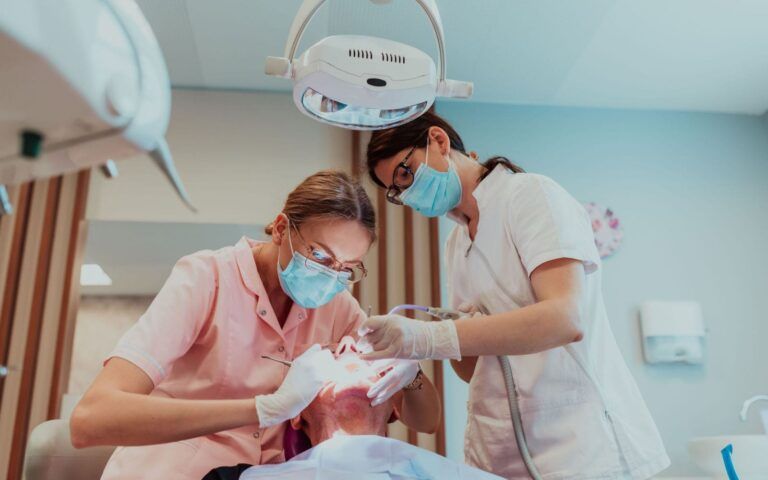What You Should Do When Recovering From Oral Surgery

Taking the time to recover after oral surgery is essential for proper healing with excellent, long-lasting results. As long as you make it a top priority, you’ll be able to have a smooth recovery. However, what you do after oral surgery can affect how you feel and how well your mouth heals. Here are some things to do and not to do to make that process easier.
What You Should Do To Recover From Oral Surgery
Oral surgery recovery can be challenging, especially when healing from problems such as abscessed teeth, complex root canals, and jaw malformations. However, here are some things you can do to make your recovery easier.
Rest After Your Surgery
Resting for at least 24 hours after your oral surgery can help improve any immediate symptoms that develop, including swelling, bleeding, and soreness. Some surgeries require sedation, so drowsiness may impact your ability to function during the first 24 to 72 hours. While resting for 72 hours is preferable, it can allow your body to focus on healing and avoid the risk of accidents or further injuries.
Take Medications As Directed
Taking your medication as directed, including antibiotics, anti-nausea medications, and pain relievers can help gradually improve your symptoms. These medicines can reduce inflammation, minimize nausea, and remove other uncomfortable side effects that may come with your surgery.
Eat Soft Foods During Your Recovery
Eating soft foods, such as mashed potatoes, soups, and yogurts, can help provide your body with the nutrition it needs and prevent pain. Having soft foods and drinks during the first few days of your recovery can help prevent unnecessary damage to the surgical site and help ease pain and pressure off your mouth.
Apply Ice Pack To Your Face
Putting ice on your face throughout the day can efficiently work to reduce swelling during the first few days of recovery. Alternating your ice pack for at least 15 minutes each time can help provide immediate relief from pain and swelling and should gradually reduce within five days.
What Not To Do When Recovering From Oral Surgery
There’s plenty you can do to make your recovery easy, but there are also other things you can do that can lead to complications. These include:
Smoking
Smoking tobacco and nicotine products restrict blood flow and slow down the healing process. Beyond that, smoking can contribute to long-term effects, such as the increased risk of lung cancer.
Drinking Alcohol
Alcohol drinks often conflict with certain medications – it thins the blood, weakens blood clots, and delays healing. It’s essential to avoid drinking alcohol for at least 48 hours after the surgery to support the healing process.
Eating Hot, Spicy, or Acidic Foods
Some foods, such as acidic candies, spicy meals, and hot foods, can irritate the already sensitive gum tissues and delay recovery. Eating hard or sticky foods can also irritate the gums and cling to the teeth, making it harder to keep the surgical site clean.
Following your surgeon’s post-operation instructions is the best way to recover from your oral surgery. If you want to learn more about our services, our University Oral Surgery center team will be delighted to provide you with the oral care you need. Call our practice today to schedule an appointment!
